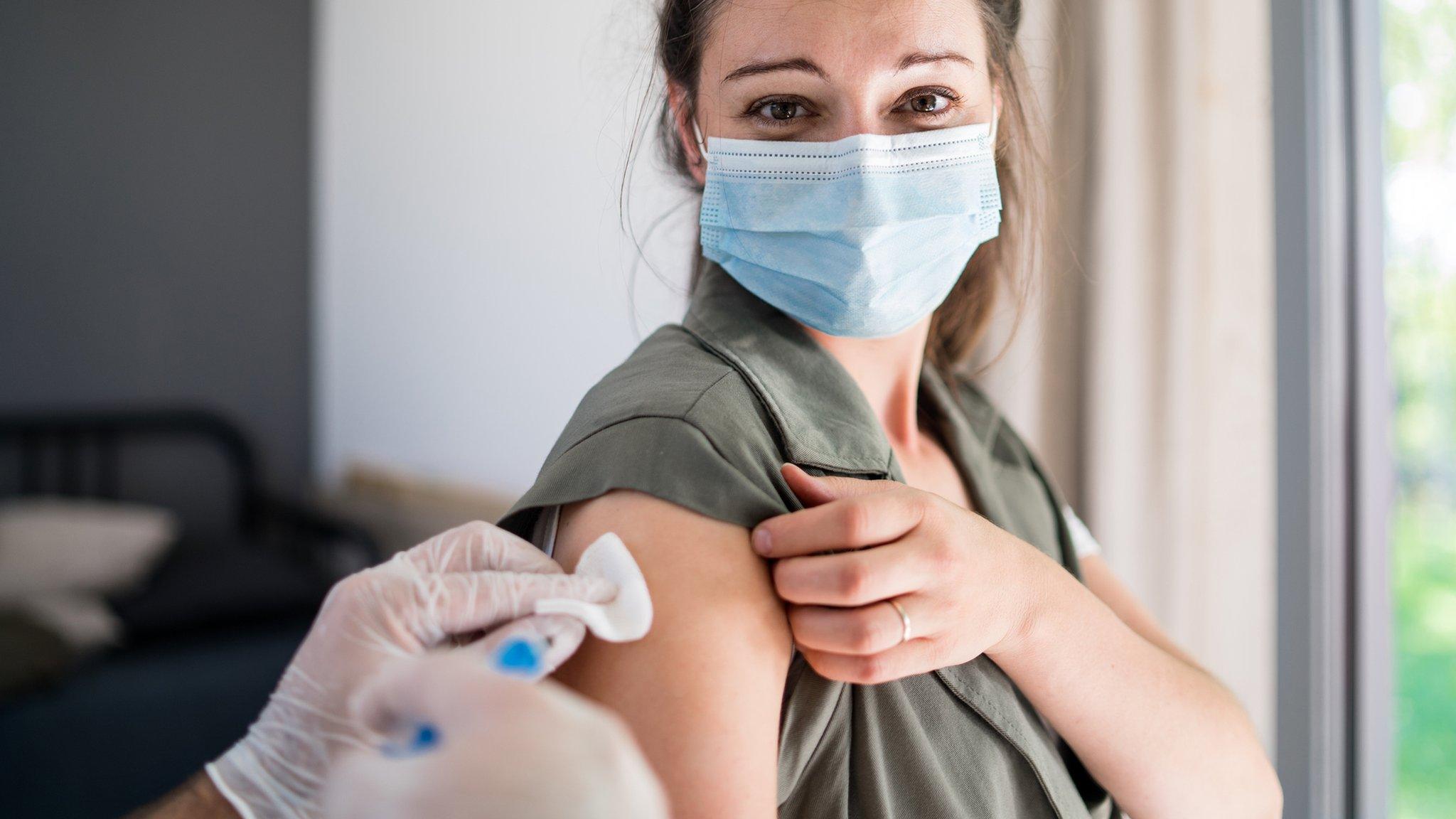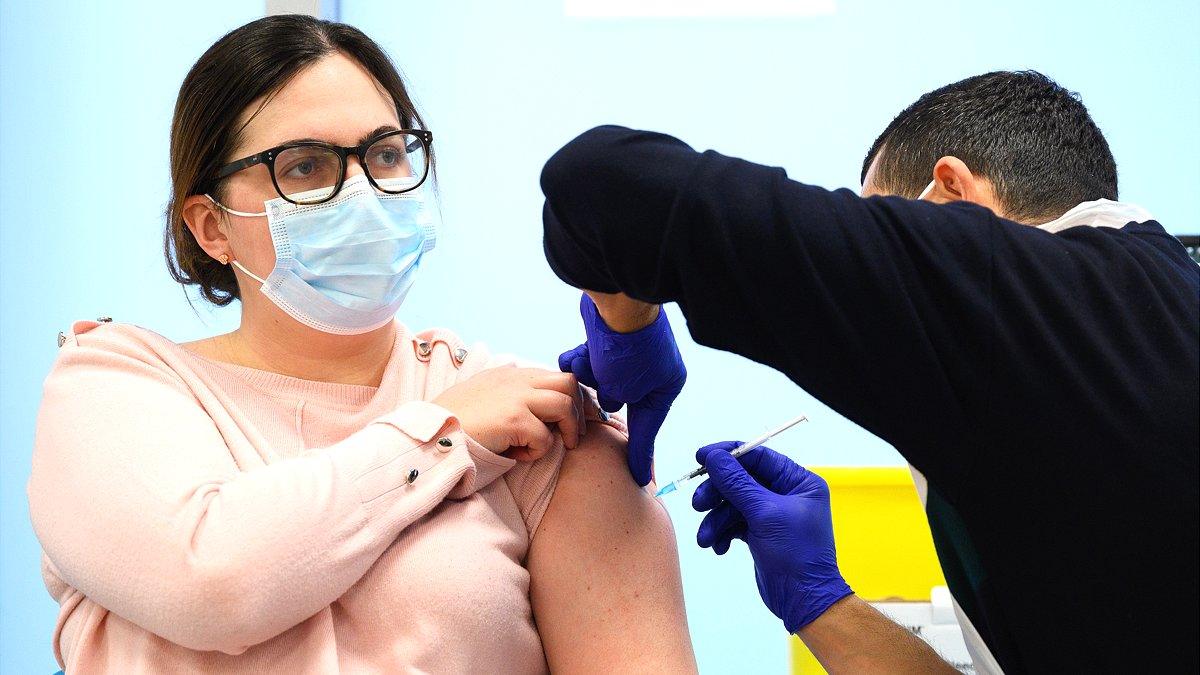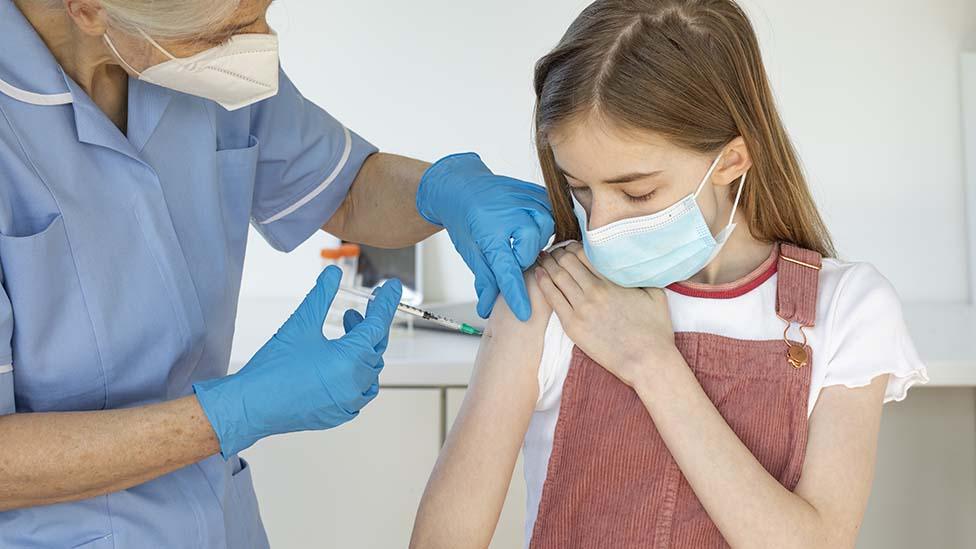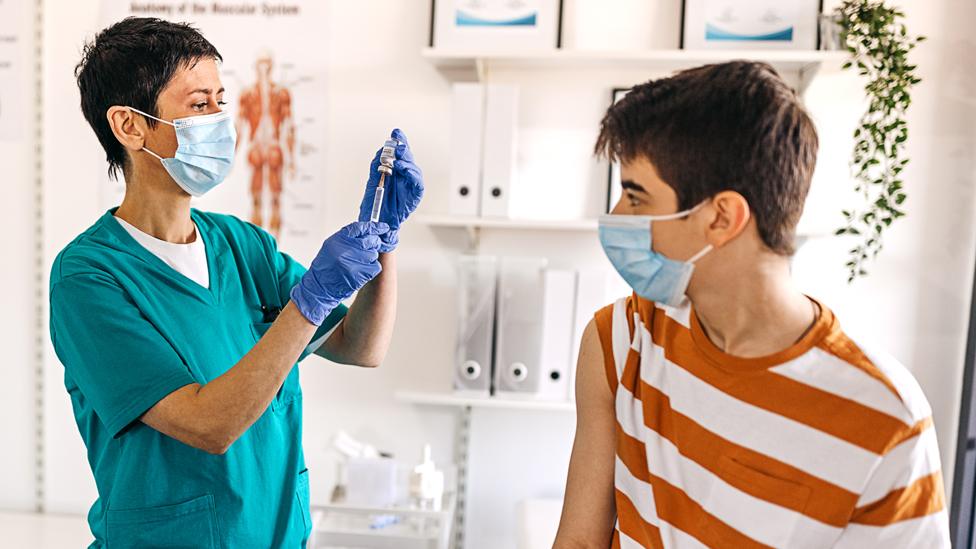Covid : Children told to delay jab for 12 weeks after infection
- Published

Vaccines have been available to 12 to 15-year-olds in the UK since September
Healthy children aged 12 to 17 are being advised to wait 12 weeks after a coronavirus infection before having a Covid jab in the UK.
Previously the advice was to leave a four-week gap.
The UK Health Security Agency said the change was a precaution against the small risk of heart inflammation.
UK vaccine advisers recommended a 12-week gap between doses when they gave a green light on Monday for 16 and 17-year-olds to get a second jab.
Evidence is emerging that this length of gap may reduce the already low risk of heart inflammation after a vaccine in children whose risk from the virus is also very low.
UKHSA stressed the risk of the heart problem was extremely low - latest data suggests nine cases of myocarditis can be expected to be seen in children for every one million doses given.
Cases to date have been mild and recovered quickly with treatment.
But UKHSA said it was taking a cautious approach by extending the recommended gap between infection and vaccination to bring it in line with the gap between doses.
The longer gap does not apply to children who are deemed at higher risk - this includes those with health conditions and those who live with vulnerable adults.
Healthy children aged 12 to 15 are only being recommended to get one dose at the moment, whereas 16 and 17-year-olds are now able to get a second.
So far, over half of 16 and 17-year-olds have come forward for a first dose and nearly a third of 12 to 15-year-olds.
While the advice will slow down the rollout of the vaccine programme, UKHSA said it should not affect spread of the virus given the protection offered by natural infection.
It said natural infection provided good protection against re-infection for three to six months.
Around 30% of children are thought to have been infected by Covid in recent months, according to official estimates based on antibody tests.
Dr Mary Ramsay, head of immunisations at UKHSA, added: "Young people and parents should be reassured that myocarditis is extremely rare, at whatever point they take up the vaccine, and this change has been made based on the utmost precaution."
- Published15 November 2021

- Published14 November 2021

- Published29 November 2021

- Published13 September 2021
